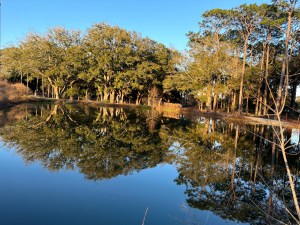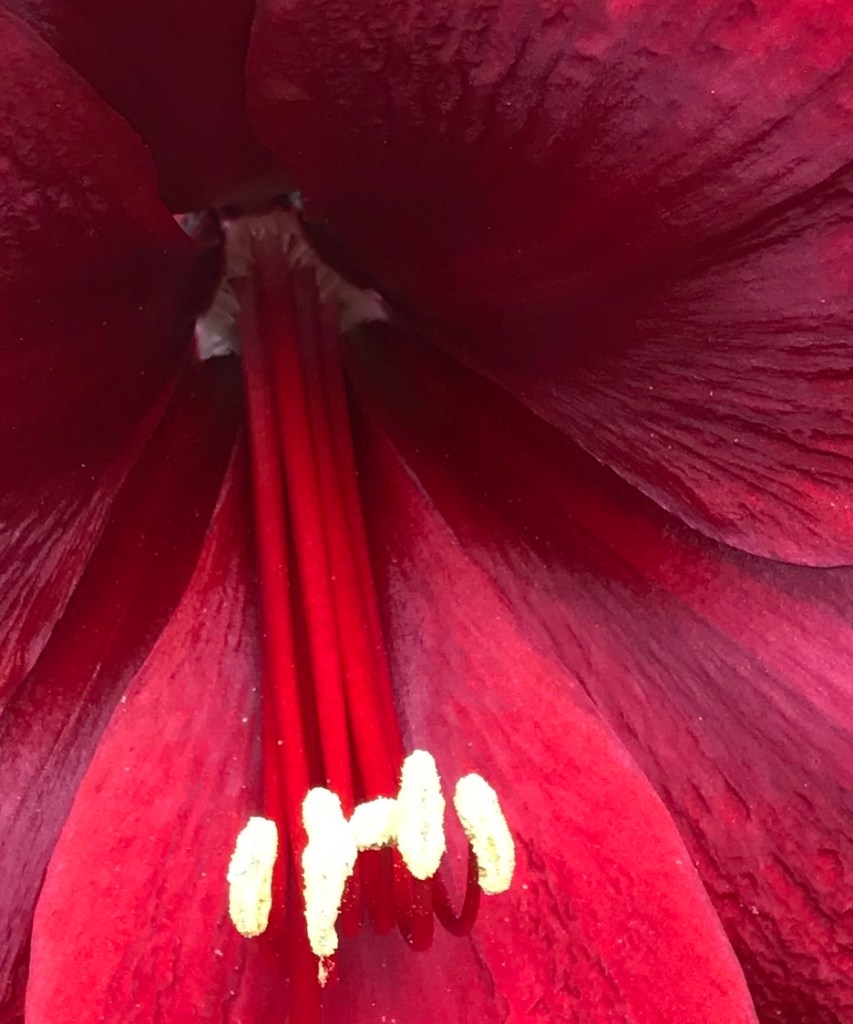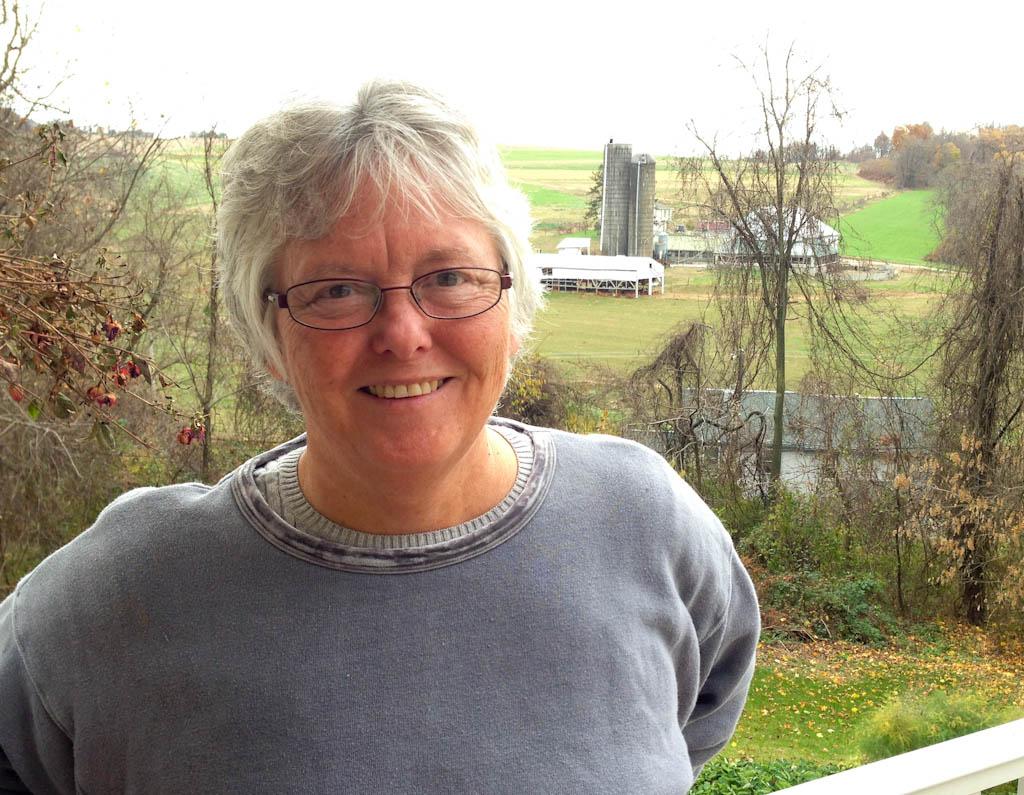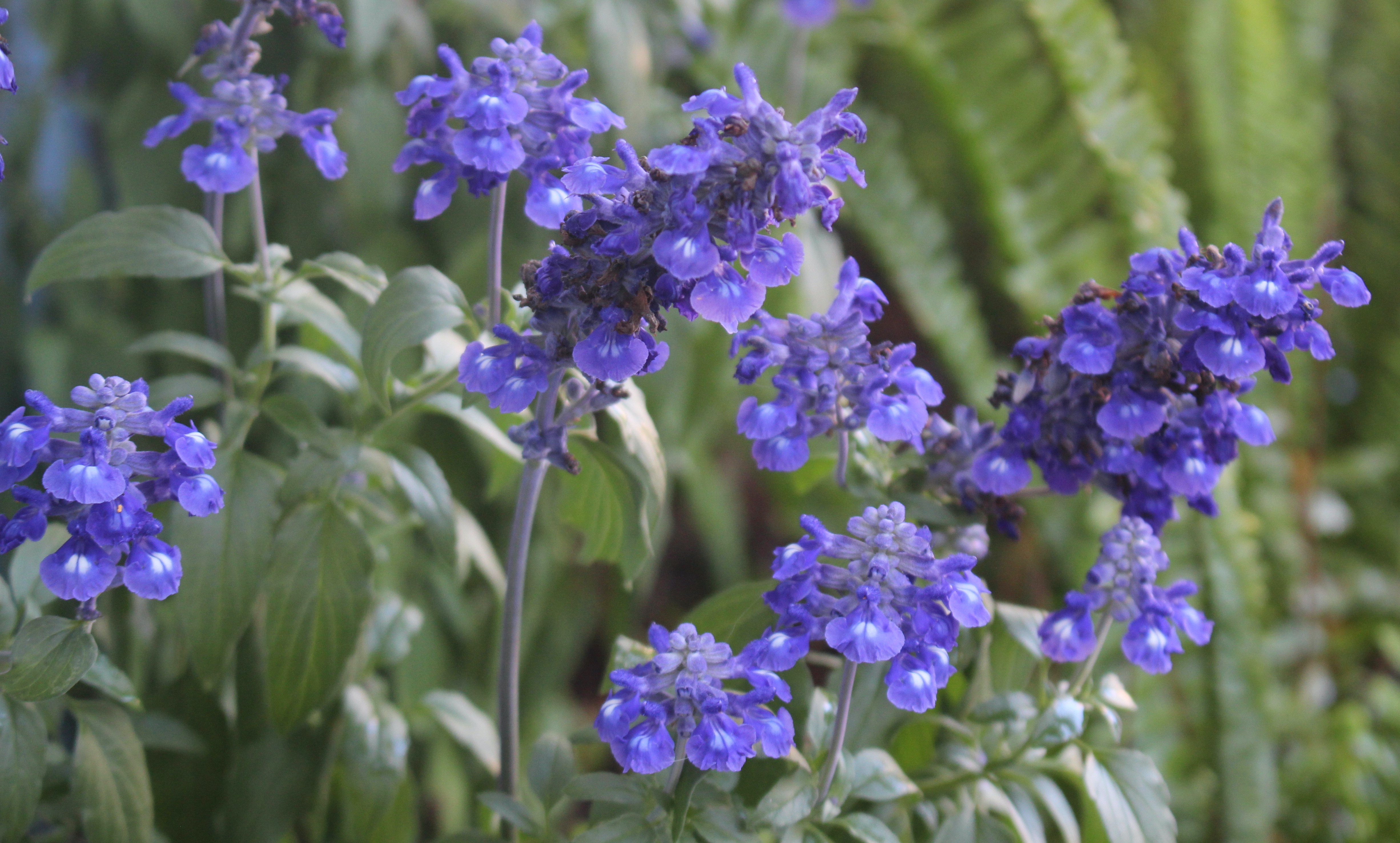Panoply Suspended
Dear Readers, Contributors, Benefactors, and Submitters,
With sadness we announce that Panoply is suspended indefinitely. It’s likely that Issue 30 was our final issue, to be confirmed. We regret this decision, announcing it with heavy hearts.
Panoply began in the spring of 2015, three friends sharing coffee. We sensed something missing here in Pensacola, something concrete, reliable, global. Thus Panoply was born, our first issue appearing that August. Since then, we’ve published about 1500 glowing treasures of poetry and flash prose from 49 US States and over 50 foreign countries. What a marvel that Panoply has been read in over 160 countries! Our goal has always been to focus on the writing, not the writer. We proudly debuted quite a few writers alongside Pushcart Prize nominees and winners, and even a Pulitzer Prize nominee. What pride and gratitude we’ve felt! We’ve always affirmed, “We’re aficionados, not scholars.” We published what we appreciated and hope you’ve enjoyed the ride. In fact, the very name Panoply indicates our intention to publish variety.
If you’ve submitted to Panoply since March 23, 2025, we suggest that you submit that work elsewhere. We do not expect to review any submissions in the short term. Though you do not need to withdraw the submissions from our Submittable service, feel free to do so. Best wishes for success!
Likewise, if you’ve made a donation to Panoply this year, we recognize that you may desire us to return it. Just contact Jeff via email. We thank you for your generosity. “Bandwidth ain’t cheap!” And neither is our submissions manager.
Should we take up Panoply again, we’ll do our best to post here, the Facebook page, and via our own outlets.
In the meantime, we wish you all inspiration, creativity, and diligence. May the Muse befriend and betroth you. Thank you for thinking of Panoply.
All our best,
Andrea, Clara, and Jeff, Editors
Pray for Ukraine.
Editors’ Choice, June 13-19, “Meditation on Yellow,” – by Michelle DeRose
Perception and language. We learn to label the world. That nearly locks in our conception and understanding. Yet artists recognize the panoply of things behind the label. So do children. Examine and enjoy.
for Sadie Grace, gone too young
What to the three year-old
is the color yellow?
The lion-toothed rosette
she picked in the yard,
its dust trail across her cheek,
milky stem like her older
sister’s pencil. Swaying goldenrod,
the bees’ bulging saddlebags.
The warbler’s bright call,
song and body inching up
like the circle she colors
in every upper corner.
The banana curling in the bowl
to cup an apple. A paper tab
moved nightly in a book,
her father’s blanket-soft voice.
 Newly named Professor Emerita of English at Aquinas College in Grand Rapids, Michelle DeRose’s poetry won the Chancelor’s Prize in 2024 and the Faruq Z Bey Award in 2023 from the Poetry Society of Michigan. Her poetry has been published in dozens of venues, most recently The New Verse News, Sparks of Caliope, Peninsula Poets, The Midwest Quarterly, and Dunes Review, and is forthcoming in Months to Years and One Hundred Poems for Hearing Dogs (anthology).
Newly named Professor Emerita of English at Aquinas College in Grand Rapids, Michelle DeRose’s poetry won the Chancelor’s Prize in 2024 and the Faruq Z Bey Award in 2023 from the Poetry Society of Michigan. Her poetry has been published in dozens of venues, most recently The New Verse News, Sparks of Caliope, Peninsula Poets, The Midwest Quarterly, and Dunes Review, and is forthcoming in Months to Years and One Hundred Poems for Hearing Dogs (anthology).
For additional Editors’ Choices, please visit:
What Waking Was – by Elly Katz
Farmhouse – by Samn Stockwell
Delinquents – by Lenny DellaRocca
Unseaworthy: a zuihitsu – by Oormila Vijayakrishnan Prahlad
Issue 30 – Spring 2025 (Completing Our 10th Year!)

Welcome to Issue 30 of Panoply. This issue completes our tenth year! We’re quite honored to have been part of such a creative and wonderful project. And we look forward to keeping on! Thanks for your support, patronage, and lovely work.
It’s been an unsettled – and unsettling – time around here recently. Unfortunately, we’re keenly aware that that statement applies to too much of our world. While we strive to tilt the scales in favor of what is good, right, and just, we keep to our own good health and welfare. Perhaps Panoply plays a small role in evening your keel amid these tumultuous waters.
Have a look at the fine work here, so much that it busts our informal norms of content! We do stress quality over quantity, but this time we can boast both!
As always, we send our love and thanks and ask you to pray for Ukraine.
Andrea, Clara, and Jeff, Editors
Panoply
Contents
83/Westlawn – by Thomas Skahill
Adidas & Autism – by Tony Gloeggler
Astringent Days – by Heidi Joffe
At the Cost of Flight – by Haley DiRenzo
Au Revoir, Geneviève – by Harry Lowery
Cento with Bowls of Fruity Pebbles – by Brian Dickson
Child and Snake – by Corbett Buchly
Chrysalis – by Kate Marchetto
Delinquents – by Lenny DellaRocca
Down the Garden – by Monique Bova
Elevated – by Maree Collie
Estimated Time of Repair – by Daniel Edward Moore
Farmhouse – by Samn Stockwell
The Fence – by Nilsa Marino
Friends Who Are Married – by Jackie Chou
Germany as Gorgon Medusa – by Gabrielle Langley
Going Home – by Robert Thomas
Golden Gate Fields – by Kathryn Jordan
Hunger – by Valy Steverlynck
I Married a Lifeguard -by Daniel Morris
If You Live Long Enough – by Harrison Fisher
The Impossibility of Motion – by Tim Love
Internal Affairs – by Gerald Yelle
Meditation on Yellow – by Michelle DeRose
Mid-Route Bus Stop – by Jean Liew
The morning after – by Valentina Fulginiti
My bi-polar bear – by Paul Martin Strohm
Naples Cafe – by Michael O’Dell
New Year Ritual – by Bob Beagrie
Ode to My Father’s Couch – by Michael VanCalbergh
The Oracle of Delphi writes – by Jonathan Jones
Pangaea: love poem to a friend – by Caroline Simpson
Picasso in Paris – by John Drudge
Procession – by Chris Dahl
Prosopopoeia – by Laurie Kuntz
Prospects of a Young Hawk – by Matthew Friday
Purpura Patula, The Elusive Snail – by Betsy Mars
Rabbit Holes – by Adele Evershed
Reading Some Guy’s Book of Poems After One by Jericho Brown – by Kerry Trautman
Red Eyes – by Linette Rabsatt
Reflections from a House – by Jeannie E. Roberts
Retreat – by Peter Appleton
A Secret Chord – by Claire Scott
Still Life – by Steve Gerson
Suburban Tableau – by Nancy Machlis Rechtman
Sunday Coffee – by Marianne Tefft
Taking Up the Cause of Brokenness – by Jeff Hardin
Tasks – by Paul O. Jenkins
Time – by Sushma Doshi
Too Early for Blackberries – by Richard L. Matta
Two Toxicology Readouts – by Cal Freeman
An Umbrian Village in Spring – by Damaris West
Unseaworthy: a zuihitsu – by Oormila Vijayakrishnan Prahlad
The Walker – by Ann Howells
Walking on Your Hands – by m.l. Bach
Warmth on a Chill Night – by Lorraine Caputo
We Do What We Can – by Audrey Howitt
What the Water Has Given – by James Ducat
What Waking Was – by Elly Katz
The Year You Were a Doll – by Sandi Stromberg
Issue 29 – Winter 2025

Once again, we relish and appreciate the fine work offered here in Issue 29. This issue includes a few Covid-era pieces – even now as the diseases resurfaces locally. There’s some fine nostalgia, lovely pastorals, pieces about war and strife, and more. We reflect our times. So does our art. Wishing everyone a safe and sound 2025 and beyond. Thanks as always to our submitters, contributors, readers, and benefactors.
Love, Andrea, Clara, and Jeff, Editors
Pray for Ukraine.

Contents
The 106 – by Donald Sellitti
Agnes’s Poem Was Called Calm – by L. Lois
All Those Flashing Lights – by Rick Adang
Anna & Her Daddy – by Michael Summerleigh
Blue Heron Fall – by Frank Babcock
The Daughter honors her Greek Orthodox Father – by Angela Costi
The Deaf’s Ma – by Pavle Radonić
Downpours Didn’t Cause Alarm Before the Hurricane – by John Milkereit
Drawn to Beauty – by Mary Janicke
Driving the Peninsula – by Michael Mintrom
Ecce Flos – by Promise Agoyi
Eyes and Tears – by E.C. Traganas
Fault Lines – by Mary Anne Griffiths
Feud – by Paul Ilechko
The Five Stages of Grief as Seen from the Pandemic – by Thomas Allbaugh
The Floromancy of Identification – by Luanne Castle
Gymnasium #23, Lutsk, part 2 – by Glen Young
Hands Holding a Cutthroat Trout about to Be Released – by Ron Drummond
Happy, Stable Poets – by Christopher Heise
Hunger – by Vyarka Kozareva
Inanna in the Underworld – by Gabrielle Langley
Kansas Road Stop – by CJ Mathis
Lessons from the Moon – by Arvilla Fee
Marilyn – by Dale Purvis
No. 9 Hamstead Road – by Russel Dupont
Ode to Water – by Tobi Alfier
Quarantine – by Anne Anthony
Roman Polanski Wasn’t Built in a Day – by Ryan Quinn Flanagan
Run for the Roses – by Rachael Ikins
See You Tomorrow – by DS Maolalai
Slights – by Sarah Ghoshal
Sober – by Troy Schoultz
Thirty Dollars – by David Sapp
throne – by John Boucher
Thrum – by Jenn Monroe
To Forget Why – by Edward Lee
Unseen Garden – by Mark A. Murphy
War Crimes – by Joseph Carrabis
Why I Can&’t Speak Cajun French – by Claire Helakoski
Your body wakes into its quiet rattle … – by Elya Braden
Announcing Our 2024 Pushcart Prize Nominations
Such a joy and honor to announce this year’s Pushcart Prize nominations from Panoply. These writers gift us all, enlarge our consciousness with their craft. Please join us in congratulating this year’s nominees.
Ithaca Waterfall – by Ingrid Bruck – Issue 26
Lines in Her Palms – by Agaigbe Uhembansha – Issue 26
Magpies of Madrid – by Bruce E. Whitacre – Issue 26
Mother’s Hunger – by Jonathan Chibuike Ukah – Issue 28
Tapestry – by John Copley Alter – Issue 27
Van Gogh Speaks from His Deathbed – by Ellen Austin-Li – Issue 27

Ingrid Bruck

Agaigbe Uhembansha

Bruce E. Whitacre
Chibuike Ukah

John Alter

Ellen Austin-Li
Issue 28 – Autumn 2024

Photo by Amanda Pope
Hello Panoply Readers!
Once again, we’re proud and privileged to showcase the fine work included in Issue 28. Though it sounds repetitive, even perhaps overdone, we’re touched by the talent and artistry of our contributors. We’re esteemed by the quality and quantity of our submitters. And we’re indebted to and ever-mindful of our readers. Thanks for joining us on this journey.
We have a couple related to thrift stores, a few about mothers and mothering. Some lovely poetry in form. Lots of travel. Animals and other beings. A smattering of Italy and things Italian. And such fine craft in the poetry of form.
We hope you enjoy the issue, and we look forward to producing Issue 29 and beyond. (Stay tuned for our Pushcart Prize nominations!) Thanks for thinking of Panoply.
Love, Andrea, Clara, and Jeff, Editors

Pray for Ukraine
Contents
’93 – by Francine Witte
Abruzzo – by Amy Barone
Absence – by George Franklin
Beachy Keen – by Bray McDonald
Blue – by Jo Angela Edwins
but it pours – by Manda Eliot
Cartography– by James Croal Jackson
Continental Breakfast – by Caitlin O’Halloran
Demo Mixtape: What a Wonderful World – by Brian Dickson
Eden – by Susan Pollet
Eurydice – by Alison Stone
failed therapy – by Joseph A. Farina
Finale – by Lana Ayers
Firefox – by Mathieu Parsy
Frog Shrouded – by Gary Grossman
Geese on Ice – by Jacqueline Jules
Godspeed to the Weeds – by Jeannie E. Roberts
Good Friday – by Peter Newall
Grownup Gods – by Claire Rubin
Hide-and-seek Surprise – by Moss Springmeyer
A Horse of Rincon – by Max Heinegg
I Become Aquatic on the Road – by Phineas Knowles
The Jade Waters of Taal’s Crater Lake – by Sandi Stromberg
Laocoon: Beware of Greeks Bearing Gifts – by Patricia Nelson
Minutes – by Tony Gloeggler
Missing Time – by Katherine Dering
Monday – by Ann Howells
Mother’s Hunger – by Jonathan Chibuike Ukah
Mourning – by F.I. Goldhaber
My Mother’s Fingerprints – by Madlynn Haber
The News – by Alicia Viguer-Espert
Nobody Reads Hemingway Anymore – by John Spudich
Of Knowing Others – by Rip Underwood
Of white skies and dark sorrows – by Mallika Bhaumik
Our Back Deck – by Eve Lyons
The Pear Tree – by Dallas Lee
The Restless Kind – by Mike Lee
Secondhand Sam’s – by Rebecca Klassen
Self-Portrait as Hologram – by Steve Gerson
Should we have stayed at home, wherever that may be?* – by Caroline Cottom
Starlight – by Erin Jamieson
Thrift Store Conversation – by Dave Malone
Two Cents – by Marianne Tefft
Una gazza ladra spiegando la situazione del giardino, or, The Thieving Magpie Explains It All for You – by Julian George
Undrowning the Bees – by Terri McCord
Villa Luna Rossa – by Marc Di Martino
Waiting for Clearance – by Catherine Arra
Waiting for Night to Fall on Taos – by Andrena Zawinski
What Passes for Spring – by Jane Sasser
What Survives: A Cento* – by Gene Twaronite
While in Sicily – by Allan Lake
With No Drop-Cloth – by Frederick Wilbur
Yelping the Waterfront – by Cal Freeman
Issue 27, Spring 2024

Photo by Andrea Walker
We hope spring (at least here in the Northern Hemisphere) is bringing life to life around you – and within you! Perhaps reading these fine revelations will bring some growth.
Issue 27 includes a few pieces with unusually long titles, a few multilingual offerings, and even a brand-new poetic form, the “In-Titled” poem. Please have a nice leisurely read. So much to soak up, like sunshine and rainfall. Nurture the unfolding of your spirit courtesy of this collection of fine work. Make it a great day.
Thanks for supporting Panoply.
Love, Andrea, Clara, and Jeff, Editors

Pray for Ukraine.
Contents
Beaufort Force 3: Forecast Breezy for Sunday – by Karla Linn Merrifield
Beauty – by Jan Wiezorek
Benedictions– by Sharon Whitehill
Brenda’s Nimbus – by Sterling Warner
Carousel – by Kristen Ray
Crossing the Line – by Margaret R. Sáraco
The Day After Tomorrow – by Linda Rocheleau
Doug – by Nathan Leslie
Erica Ventricosa (Italian Heather) – by Heather Nelson
Felix Culpa – by Michelle Holland
The First Daffodil of the Year – by J.M. Summers
Gardening at 70 – by Sandra DeRose
Guided (Granny Grills) – by Ellis Elliot
The Horned Owl Gathers – by Matthew James Friday
Lament Off the Lake – by Russell Rowland
leaks – by Eva Eliav
The Lettuce Bolts – by Joan Mazza
The Longest Talk – by Jackie Chou
Lyrical – by Robin Wright
Midnight Chat – by Michael Keshigian
Monarch in the Cornflowers (An Evocation of Bachelor’s Button Handpicked for the Buttonhole of Your Father’s Lapel) – by Jeannie E. Roberts
More Answers – by Richard L. Matta
A New York Corner – by Linda Lerner
On the Way Home – by Cheryl A. Rice
On/Off Schedule – by Nick Romeo
Oystercatcher, Are You Hammer or Spear? – by Gerald Yelle
The Pastoral – by Andrew Jeter
Plenty of Sun Left – by Susanna Rich
quand tu me manques – by Sara Cosgrove
Reading Psalm 121 through Mam-gu’s Spectacles – by Maura High
Roosters and Church Bells – by Gail Tirone
Sadako Sasaki (January 7, 1943 – October 25, 1955, Hiroshima, Japan) – by Jay Brecker
saudade (reprise) – by Steve Brisendine
A Ship in a Bottle – by CL Bledsoe
Shipwreak – by JW Burns
Should, Could, Would – by Sarp Sozdinler
The Smell of Gas Reminds Her of Sylvia Plath – by Dr. Catalina Florina Florescu
Soft Apocalypse – by Karl Sherlock
Stop to Think of It, This Fits Each of Us Tighter[1] – by Jonathan Yungkans
Tapestry – by John Copley Alter
Ten Instructions for Loving Amanda – by Marcelo Medone
Through Oklahoma – by Paul Dickey
to the color last night – by Corbett Buchly
Too Late (Zoo Elephant) – by Julie A. Dickson
Two in the Pew – by Angela Townsend
Ubi Sunt – by Linda Scheller
Upon discovering that my cat moves through multiple worlds leaving a trail of tumbled objects in significant patterns – by Robert Okaji
Van Gogh Speaks from His Deathbed – by Ellen Austin-Li
We Swallow 8 Spiders in A Lifetime – by Kashiana Singh
What I Wish for You – by Jeff Burt
When I Woke Up – by Bartholomew Barker
When Refunds are Automatically Processed – by John Dorroh
Where to Begin Again – by Claire Scott
White Magic – by Susan Coppock
Winter Travel – by Samn Stockwell
Writer’s Block is a Bitch – by Stephanie L. Harper
Issue 26 – Winter 2024

Hello Panoply World,
Can you believe it’s already 2024?! A leap year at that! So much happening in our news, significant armed conflicts, the onset of a US Presidential election, the coming of the Summer Olympics … Meanwhile, our poetry and flash prose world continues to flourish. We love it! Issue 26 features some great new voices and welcomes back some familiar ones. We’ve got CNF, form poetry, rhyme, experimental and new forms, plenty of free verse, even a sonnet! We travel through space and time, laugh and cry, love and mourn. We thank our fine, brilliant contributors for letting us feature their art and of course, thank you for sharing your time with us at Panoply.
Pray for Ukraine.
Love, Andrea, Clara, and Jeff, Editors
Contents
9 – by Merilyn Chang
After Bean Picking – by David R. Topper
After Dinner Was Over and Dishes Put Away – by Ginger Dehlinger
The Air is Heavy and Alive – by Rina Palumbo
Angry Wet Wind – by Marianne Brems
Aunt Nini’s Dream – by Lenny DellaRocca
Birds of the Morning – by Jackson Evans
black widow – by Ken Cathers
Blur – by Diana Donovan
A Brief Lesson in Natural History – by Mercedes Lawry
Chateau Couchebout – by Kathi Crawford
Discoveries at the Bottom of the Ball Pit, Written on a Child’s Birthday Party Invitation– by Cecelia Kennedy
Do You Recall the Dawn of Aesthetic Pursuit – by Hedy Habra
Dream Screenshot – by G. Timothy Gordon
First House – by Patricia Nelson
Following – by Michael Thomas Ellis
Force 11: Accompanied by Widespread Damage – by Karla Linn Merrifield
Halcyon Days – by Sharon Whitehill
Introducing High Schoolers to Poetry – by Brandon C. Spalletta
Ithaca Waterfall – by Ingrid Bruck
learning angst – by Geoffrey Aitken
Letter to Hugo on Skye – by David James
Letting Go – by Karen VandenBos
Letting Go of the Self – by Tara A. Elliott
Lilies and Not Children – by Gavin Kayner
Lines in Her Palms – by Agaigbe Uhembansha
A Little Haven – by Sandi Stromberg
Magpies of Madrid – by Bruce E. Whitacre
Mama and Me – by Greg Garner
Metronome – by Megha Sood
Mighty Oak Haibun – by Laura Daniels
A Moment in Time – by James G. Piatt
Morning Light – by Victoria Wiswell-Mabe
My Brother, Summer, A Photograph – by Andrena Zawinski
Never Enough – by Soumya Doralli
Nothing He Said – by Tony Gloeggler
Old Todd’s Place – by Mark Mansfield
Open Range: A Haibun – by Shelli Rottschafer
Plea – by Donna Vitucci
Poem for Marie Laveau – by Chris D’Errico
Poem in a Time of Chaos – by KB Ballentine
A Poet, Awaiting the Verdict – by Marzia Rahman
Premature – by Lorraine Caputo
Preparing to Accept – by PD Lyons
Sentences 122-129 – by Scott Ferry
Sex – by Nicole Chvatal
Statewide Lockdown, Day Forty – by Ace Boggess
Summer Reruns – by Kenneth Kapp
The Toy Room – by Shannon Frost Greenstein
Three Days, Max – by Hibah Shabkhez
Tram ride with Jibanananda – by Sayantani Roy
Trois différences entre lui et elle – by Charles A. Perrone
Two Sides of a Butterfly Wing – by Cordelia Hanemann
Urn – by Jordin Swanson
The Very Last Time for Everything – by Daune O’Brien
Visitation Hours – by Audrey Howitt
When the Whole World is Short Staffed – by John Milkereit
The Winter Heron – by Steve Ablon
You Might Hear a Mother Calling – by Susanna Lang
Issue 25, Autumn 2023

Photo by Andrea Walker
Hello Panoply world!
We’re pleased to present Issue 25. Thanks to our submitters and congratulations to our contributors. We hope the blaze of summer (here in much of the US) cools as you sit back and enjoy this fine art.
We noticed an unusual amount of narrative in this issue. Some flash, and also some in the more familiar poetic forms. Lots of stories to tell! And some bonus the fine storytelling with snappy voices. (Speaking of poetic forms, we do enjoy a traditional format from time to time. So, considering sending us a pantoum or sestina sometime.) There are also a few long pieces included. We love them all, hoping our name reflects our values and priorities.
We hope you enjoy Issue 25! Thanks for thinking of Panoply.
Pray for Ukraine.

With love,
Andrea, Clara, and Jeff, Editors
Contents
actually – by Mark Fisher
Apple of My Eye – by Beth Gordon
Avast – by Karla Linn Merrifield
Beeldenstorm – by Kathryn Jordan
The Best Use of My Time in the Universe Where You’re Still Alive – by Michael VanCalbergh
The Boxer at Rest – by Mark Madigan
Broken Needles, Lost Pins – by Laura Jan Shore
Circuit Breaker – by Jeanne Blum Lesinski
Compass – by Cheryl Snell
Cyst Cold – by Aakriti Kuntal
Daddy is Just Like You – by Aly Allen
Do You Believe in Gar Jesus? Wanna Meet Him? – by Zach Arnett
Endangering the Urban Dwellers – by John Milkereit
Fish on Plate – by Frederick Pollack
Ghazal – by Joshua Gage
Ghosts in Dreamland – by Kaecey McCormick
He’ll Tell the Chicas in Biology Cuz That’s Where We Learn About Bones – by Brian Dickson
idaho – by Nicholas Barnes
In the House of God – by Mitch Roshannon
Keep My Head When You Go – by Geoff Sawers
Langkawi Archipelago – by Sandi Stromberg
Leaving – by Melissa Eleftherion
lego love – by Norah Mayer
Lessons in Derivatives – by Gary Glauber
Life Without Make-Up – by Ilari Pass
Mother is a Verb, too – by Gus Peterson
My Father, Howling – by Katie Hoerth
On Our Way to Sal’s Market – by Ed Gaudet
Pamela Brown Thomas* – by Janet Ruth Heller
Posted – by Steve Gerson
Simple Symposium – by John Zedolik
Smells – by Ronald Pelias
South Bar, December – by Steven Fortune
Spraying DDT – by Donald Sellitti
The Universe is Broken – by D.A. Hosek
A Walk With the Wild – by Preeth Ganapathy
What Passes for Laughter – by Simon Thalmann
Wherever You Are, Get Here – by Tom Squitieri
Wild Little Girls – by Rowan Waller
Thanks to Co-Founder Ryn Holmes, On Her Retirement from PANOPLY!

A bittersweet moment for us as we say goodbye and thank original Co-Editor Ryn Holmes as she completes her Panoply journey. Here’s a note from Co-Editor Andrea Walker, one of her best friends.
Thanks, Ryn
A native Californian from Los Angeles and former resident of San Francisco, award-winning photographer, wife and mom, Ryn Holmes’ profession as a psychiatric nurse eventually brought her to Pensacola.
Here she joined the Emerald Coast Writers (formerly West Florida Literary Federation) where I met her at one of our monthly open mics. We became friends, attended open mics regularly and discovered Jeff at a great little place called Sluggos. Realizing he’s a fine poet, we invited him to our meetings at ECW. We’ve been writing pals for awhile within our local community of writers and poets, and my awareness of their talent and skill grew.
So eight years ago when Ryn invited me to join her and Jeff as a co-editor of a new ezine Jeff was dreaming up, I was delighted. We brainstormed and tossed around ideas and names. Soon Panoply was born. If you’ve never experienced it, co-editing together gives you unexpected insights into personalities you thought you knew. We all have strong opinions and don’t always agree, but coming to consensus is an accomplishment, and the process is fun.
The poet Ryn writes of people with intuition and places with flair, the surprising metaphor or analogy. In sophisticated, yet accessible, language, she boldly expresses controversial issues with concrete imagery. Her intellect, appreciation of fine arts, diligence in getting the job done are a few of her characteristics I admire. I happen to know she just released an anthology, “The Edge of Light and Darkness.” Before she retired several years ago, she picked up photography again, turning some of her work into the unique abstract style which you have enjoyed on Panoply at the beginning of each issue. She continues to create, is an associate member of at a local art gallery, and has spent the last couple of years attending weddings of grandchildren in locations far and wide.
Ryn’s love of jazz and blues and pleasure in fine wine and great cuisine fills the time spent with her fun. I applaud her willingness to ride with the top down and not worry about her hair and her unwillingness to “dress like a grownup.” More than that, she’s a sensitive, generous soul, a conscientious, caring friend. With gratitude for her contribution to Panoply, we reluctantly say goodbye to Ryn the co-editor. We will miss her keen observations and sharp wit, but we’re thankful she’ll be around as friend and artist.
Andrea Walker
I would like to add that Ryn was an essential element of the team, from the very conception and formation through Issue 24. She named the publication; she provided a great deal of the masthead artwork, a simple but fascinating technique of manipulating photos of everyday elements. (No CGI involved!) She was always decisive, urging us to take action when we plodded and pondered. She proposed the adoption of a “Save,” which we use when any one of us finds a particular piece worthy of publication even if the others are not so enthusiastic. She served as our Secretary, particularly needed in the early days as we built our process airplane as we flew. And she was always the first to complete her reading/evaluation assignments!
She’s also a good friend and a bit of an inspiration as I contemplate the twilight of my own literary career. Blessings and thanks to you, Ryn.
Jeff



